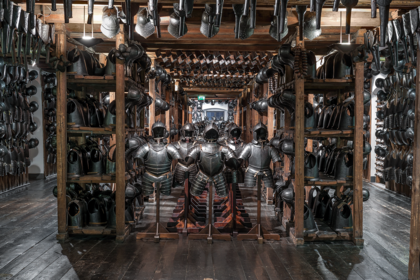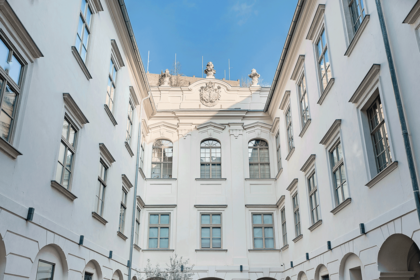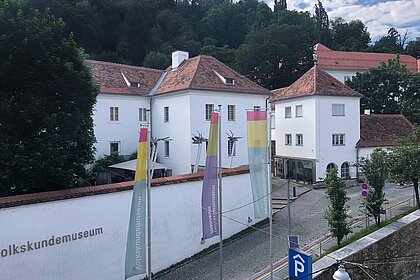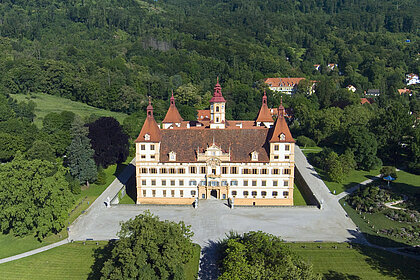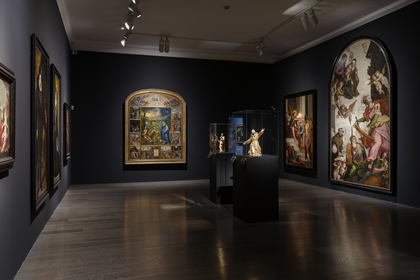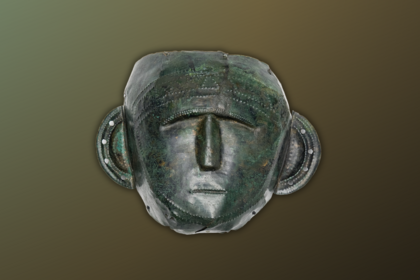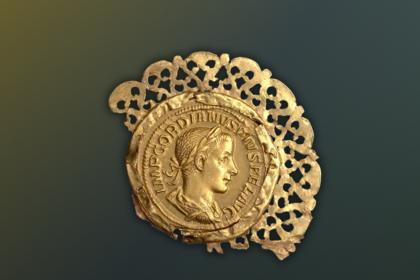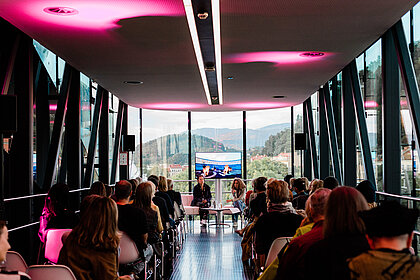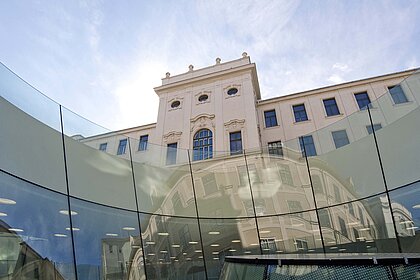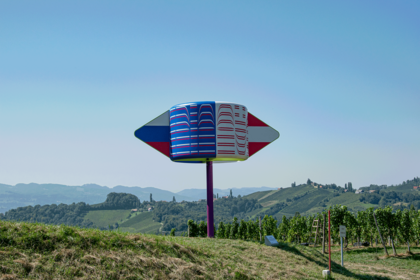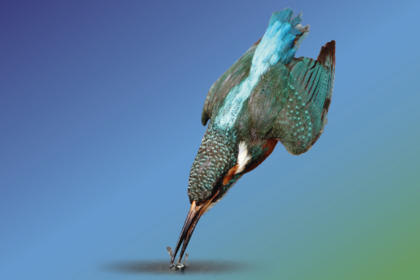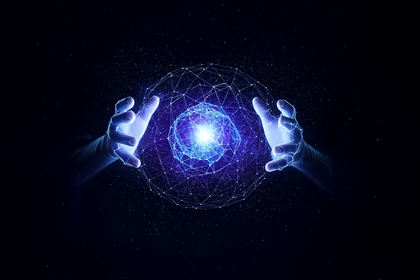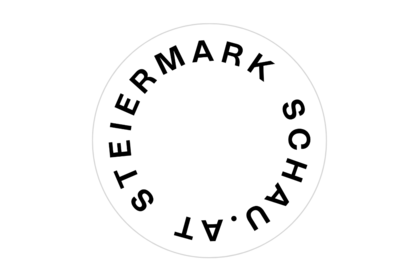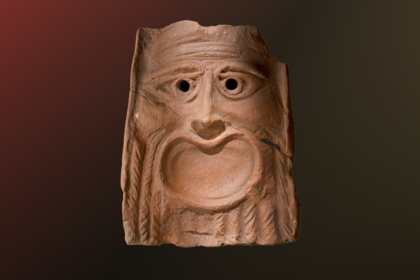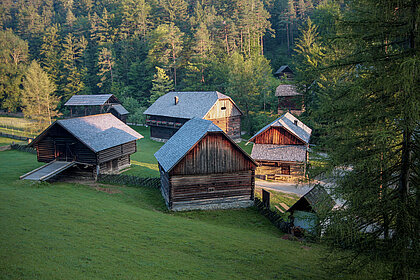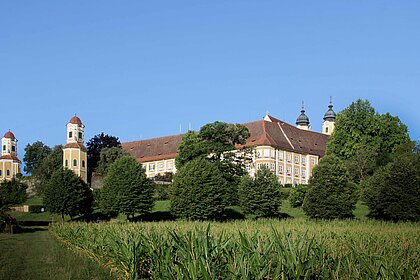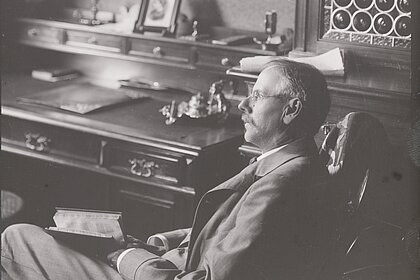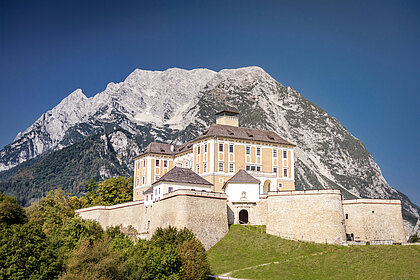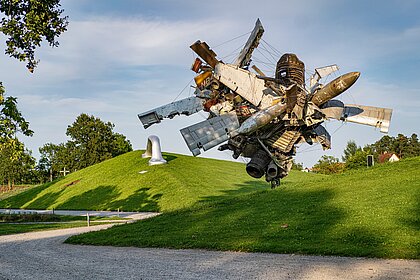All programme items
12.03.2026
6pm - 7pm
Kunsthaus Graz
Event
Michael Gülzow. The Gate to Unreality
Midissage
Michael Gülzow takes us on a journey through time, but also through reality, science fiction and fake news. In a sophisticated and humorous way, he reveals the media mechanisms of manipulation before and after AI and asks whether we still form our image of the world ourselves.
Event details
21.03.2026
11:00 - 12:00
Kunsthaus Graz
Guided tour
Guided Tour
in English
Visit our Friendly Alien to hear more about contemporary art and architecture!
Event details
21.03.2026
11am - 12pm
Kunsthaus Graz
Dialogue
Michael Gülzow. The Gate to Unreality
Artist talk
In Michael Gülzow's installation between news, science fiction and fake worlds, curator Martin Grabner talks with the artist about the relation between reality and fiction and how contemporary image production, from science fiction to AI, shapes our view of the world.
Event details
28.03.2026
11:00 - 12:00
Kunsthaus Graz
Guided tour
Guided Tour
in English
Visit our Friendly Alien to hear more about contemporary art and architecture!
Event details
04.04.2026
11:00 - 12:00
Kunsthaus Graz
Guided tour
Guided Tour
in English
Visit our Friendly Alien to hear more about contemporary art and architecture!
Event details
11.04.2026
11:00 - 12:00
Kunsthaus Graz
Guided tour
Guided Tour
in English
Visit our Friendly Alien to hear more about contemporary art and architecture!
Event details
18.04.2026
10am - 6pm
Kunsthaus Graz
Workshop
Reassembling Growth mit Alma Baktas
Open House. Powered by UNIQA
18.04.2026
11:00 - 12:00
Kunsthaus Graz
Guided tour
Guided Tour
in English
Visit our Friendly Alien to hear more about contemporary art and architecture!
Event details
19.04.2026
10am - 6pm
Kunsthaus Graz
Workshop
Reassembling Growth mit Alma Baktas
Open House. Powered by UNIQA
25.04.2026
11:00 - 12:00
Kunsthaus Graz
Guided tour
Guided Tour
in English
Visit our Friendly Alien to hear more about contemporary art and architecture!
Event details
02.05.2026
11:00 - 12:00
Kunsthaus Graz
Guided tour
Guided Tour
in English
Visit our Friendly Alien to hear more about contemporary art and architecture!
Event details
09.05.2026
11:00 - 12:00
Kunsthaus Graz
Guided tour
Guided Tour
in English
Visit our Friendly Alien to hear more about contemporary art and architecture!
Event details
16.05.2026
11:00 - 12:00
Kunsthaus Graz
Guided tour
Guided Tour
in English
Visit our Friendly Alien to hear more about contemporary art and architecture!
Event details
23.05.2026
11:00 - 12:00
Kunsthaus Graz
Guided tour
Guided Tour
in English
Visit our Friendly Alien to hear more about contemporary art and architecture!
Event details
30.05.2026
11:00 - 12:00
Kunsthaus Graz
Guided tour
Guided Tour
in English
Visit our Friendly Alien to hear more about contemporary art and architecture!
Event details
06.06.2026
11:00 - 12:00
Kunsthaus Graz
Guided tour
Guided Tour
in English
Visit our Friendly Alien to hear more about contemporary art and architecture!
Event details
13.06.2026
11:00 - 12:00
Kunsthaus Graz
Guided tour
Guided Tour
in English
Visit our Friendly Alien to hear more about contemporary art and architecture!
Event details
20.06.2026
11:00 - 12:00
Kunsthaus Graz
Guided tour
Guided Tour
in English
Visit our Friendly Alien to hear more about contemporary art and architecture!
Event details
27.06.2026
11:00 - 12:00
Kunsthaus Graz
Guided tour
Guided Tour
in English
Visit our Friendly Alien to hear more about contemporary art and architecture!
Event details
